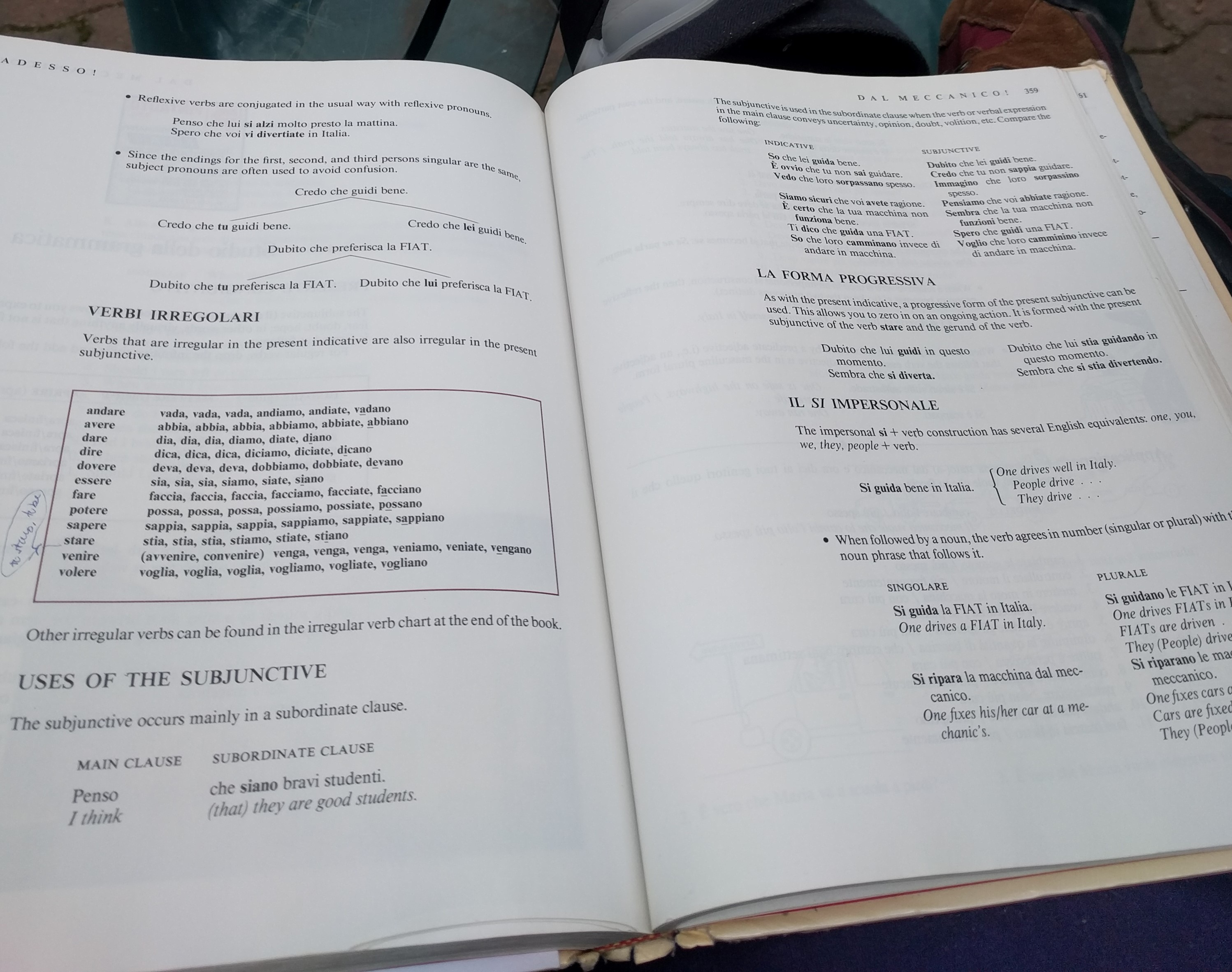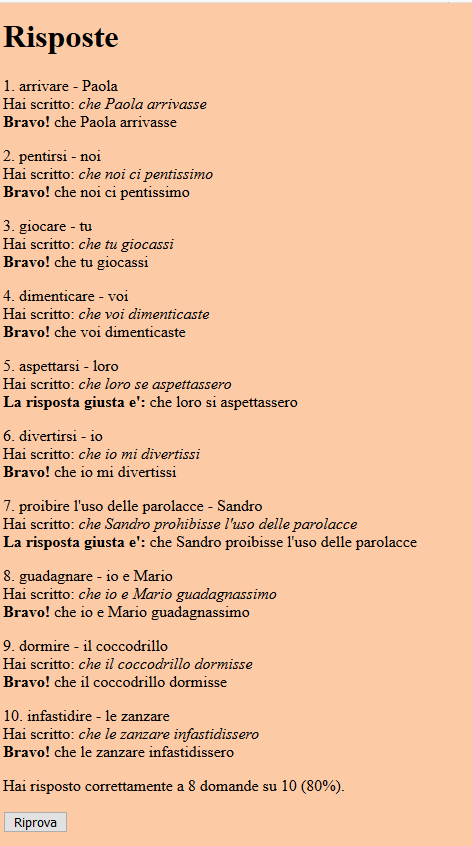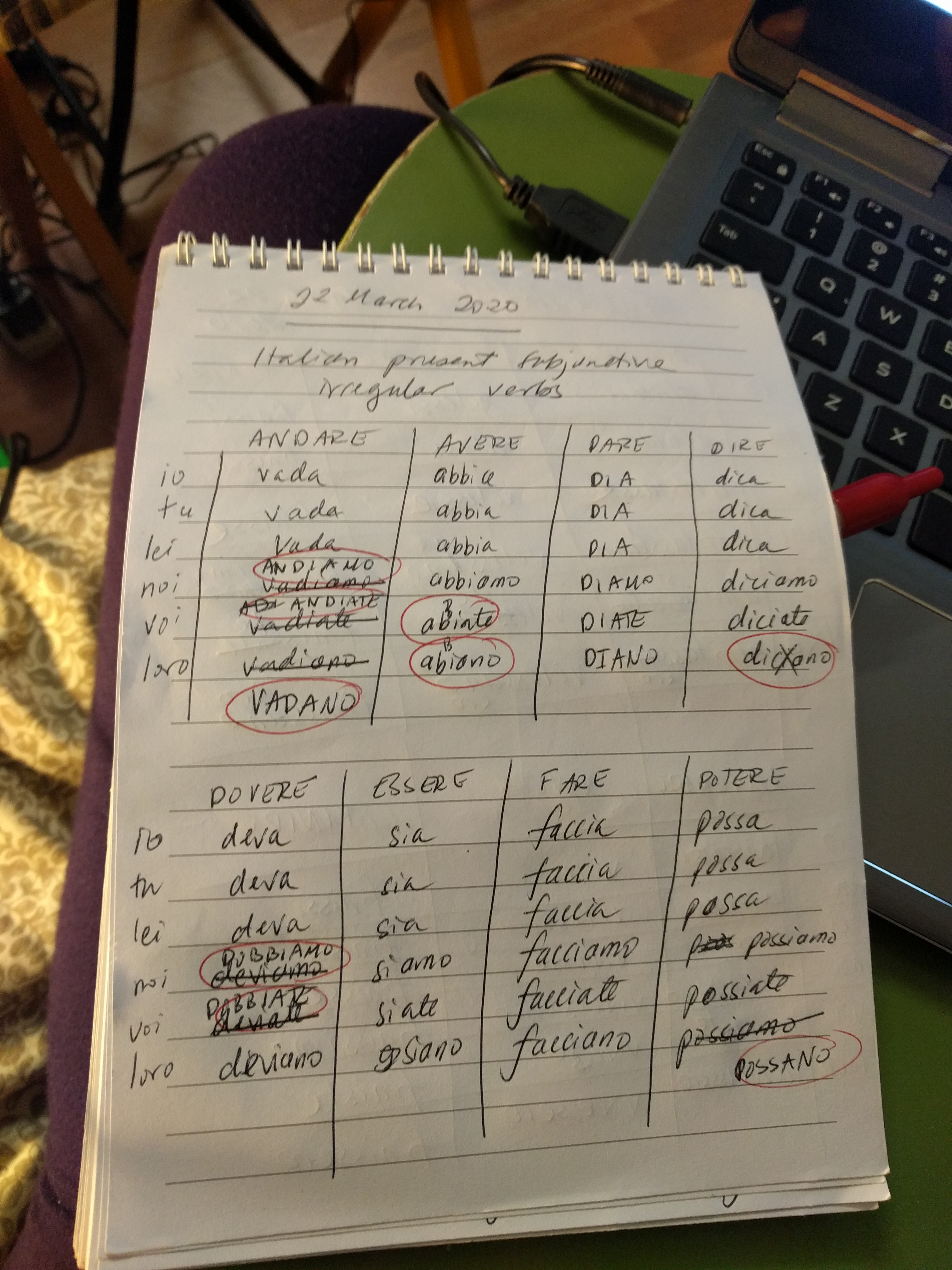Studying grammar is a good way to get one’s mind off of the Covid-19 pandemic.
Susanna, do you seriously have nothing better to do?
There are more entertaining things to do like watch movies on Netflix but this is also a good time to review those nasty grammatical structures that you’ve been avoiding or finally study that language you’ve been talking about studying for years. You can still watch movies and do Skype calls with your friends, but also leave time to do those projects you’ve been postponing.
Getting into the nitty gritty of complex grammar is hard and engages much of the mind, leaving one with less mental space to worry or panic. Obviously, if you are in a stressful situation, are sick or are caring for someone with the virus and can’t focus on language learning, this is not the time to brush up on the subjunctive.
You actually study grammar?
Sometimes people misinterpret me when they see the title of my book, Language is Music and they hear me say that you can use music, movies and other media to learn languages. They think I’m saying that you don’t have to learn grammar. There is a disclaimer in the book that clearly states that you still have to learn grammar whether you study on your own, in a group or private class with a teacher, via online lessons, an app or some other way. There’s no way of getting around that.
I am sharing about how I had to force myself to relearn the hardest forms of the Italian subjunctive using a grammar book, online exercises and … a song. (That last part was not hard to guess, right?) I am writing this blog post to show that even a seasoned language learner makes basic mistakes and has to write out verb conjugation tables, like in school.
Subju___what?
I’ve known for several years that one of my major pain points in Italian are the various forms of the subjunctive tense that imply that there is doubt. I’m usually fine with the present subjunctive but it’s the imperfect subjunctive (congiuntivo imperfetto), the perfect subjunctive or past subjunctive (congiuntivo passato) and pluperfect (congiuntivo trapassato) and how to use the subjunctive in conditional clauses that is hard.
Since I rarely speak in Italian (sometimes only twice a year), I just haven’t made an effort to improve my grammar. When I read Italian or I hear Italians speak, I understand when they use all the different forms of the subjunctive and the conditional clauses. but I usually just use the imperfect tense or present subjunctive with conditional clauses.

My Italian textbook was getting very lonely from scarce use in the past decades:) I read the explanations for the subjunctive tenses and conditional clauses. There were exercises but I had no answer key or workbook so I needed to find a way to practice and get corrected. I found two websites, Online Italian Club and Middlebury (bottom of page: esercizi sistematici) with free grammar exercises and an online correction tool that showed me when I had made mistakes.
In the screenshot below, I got 8/10 answers correct. The first quiz I did on Online Italian Club, I got 0/10 answers correct but I conveniently can’t find that screenshot:)

I did the old fashioned thing of writing out the verb conjugation tables. I made my corrections in red. I got some very basic verbs wrong, such as the present subjunctive for the 1st person plural of the verb andare. I wrote “vadiamo” instead of “andiamo”:)

Am I ashamed of my mistakes? No. But it’s important to be honest. I mostly just laugh at myself. I also encourage you to not take yourself too seriously and learn to laugh at your mistakes.
What’s a conditional sentence?
Se avessi studiato non mi sarei trovato in difficoltà con il test di italiano.
[If I had studied, I wouldn’t have had trouble with the Italian test.]
In this case, the subjunctive past perfect “Se avessi studiato/If I had studied” leads to the conditional past “non mi sarei trovato/I wouldn’t have had”. This is a conditional sentence because something has to happen (studying) in order for something else to be true (not having trouble with the Italian test).
Conditional sentences are hard in French and Spanish as well, but I find the Italian ones to be more complicated.
Songs to make this less miserable?
[embedyt] https://www.youtube.com/watch?v=8bfYQZPLCEA[/embedyt]
True to my nature, I looked for songs that use the subjunctive tense to help me memorize the various tenses. I found the song Il Congiuntivo by Lorenzo Baglioni, featured in the San Remo Italian music festival in 2018 about all the different subjunctive tenses. Apparently, it’s also hard for Italians to remember all the subjunctive tenses!
The video is really funny. It shows a guy with his girlfriend or woman he wants to be his girlfriend. He writes her a card using the wrong tenses: “Se io starei con te, sarei felice” (If I would be with you, I would be happy) instead of “Se io stessi con te, sarei felice” (If I were with you, I would be happy). She is so disgusted by his lack of knowledge of the subjunctive that she runs away and he’s heartbroken, not understanding what he did wrong. He finds an Italian grammar book in the sand and realizes how stupid he was by using the wrong subjunctive tense. He comes to her door and shows her signs with the correct forms of the subjunctive verb forms for the verbs essere “to be” and avere “to have”.
Forcing myself
The subjunctive tenses are hard. I didn’t like learning them years ago in college and I don’t like them now. But they’re easier for me to remember now because I have been recognizing them in usage for so many years in both speech and text. Now I *just* have to remember the conjugations and practice. But it’s not easy, fun or something I look forward to.
I was procrastinating so much that I even found reading about the spread of coronavirus in India a better option than reviewing the Italian subjunctive tenses. I watched New York Governor Andrew Cuomo’s one hour press conference about New York state’s Covid-19 response and I don’t even live in New York. He’s a wonderful speaker, direct, honest, to the point, blunt, knowledgeable and sometimes also entertaining. I first discovered how entertaining he was in his press conference about New York State hand sanitizer.
See how quickly I diverted the topic from the subjunctive to Cuomo’s hand sanitizer announcement?
Help with song suggestions
Please help me make the Italian subjunctive easier to digest. If you have recommendations of songs with various uses of the Italian subjunctive and conditional sentences, please leave a comment with a link to the songs.












